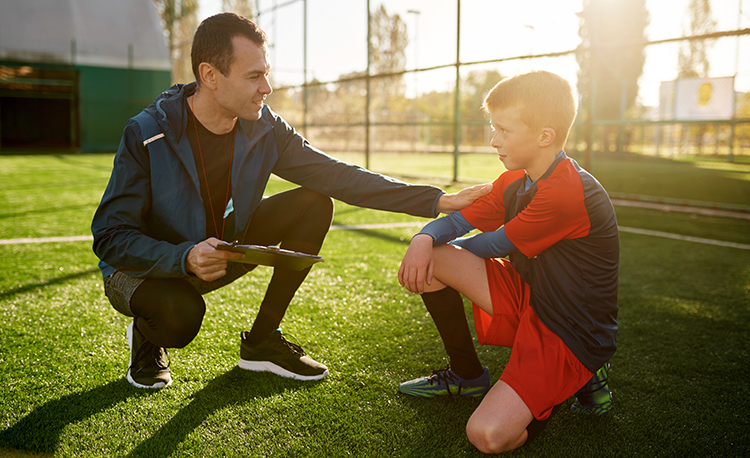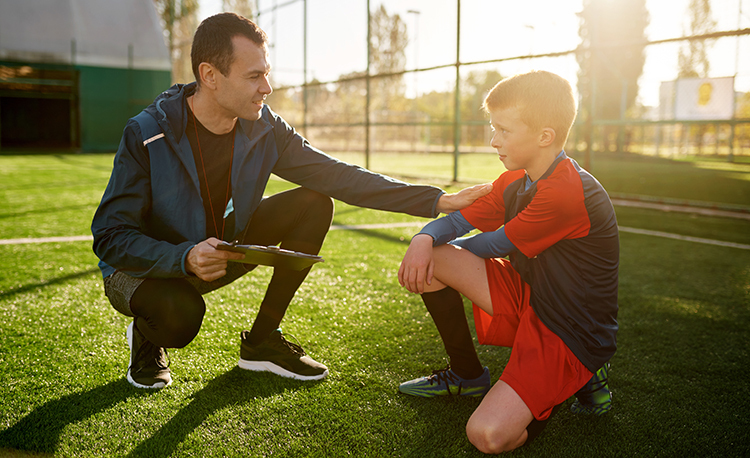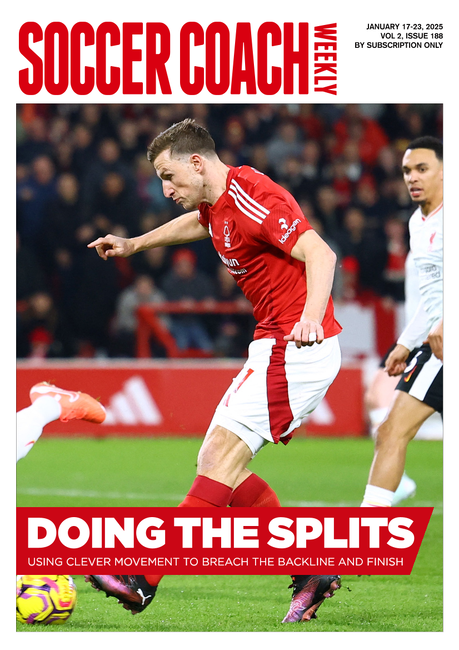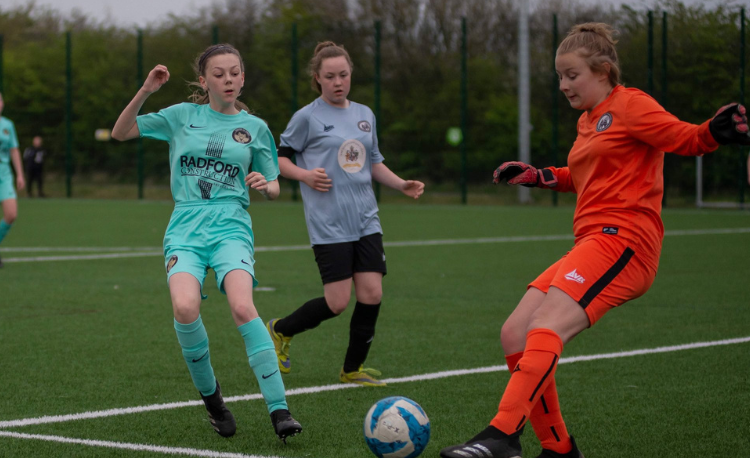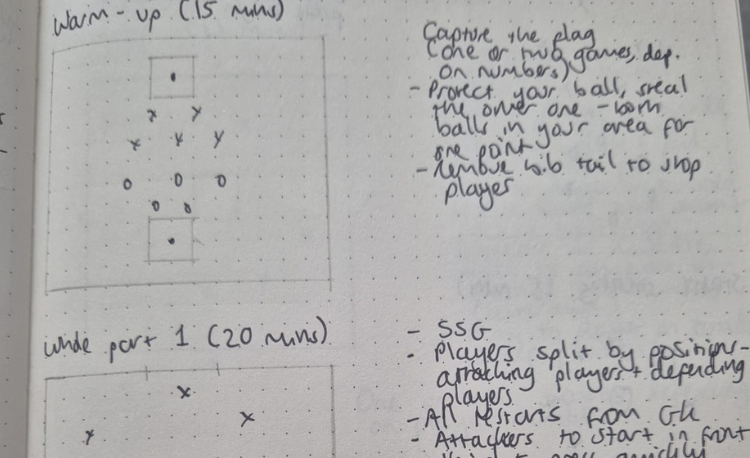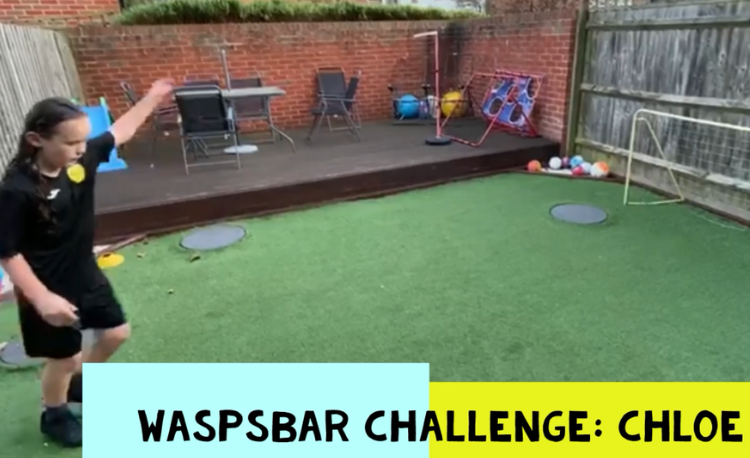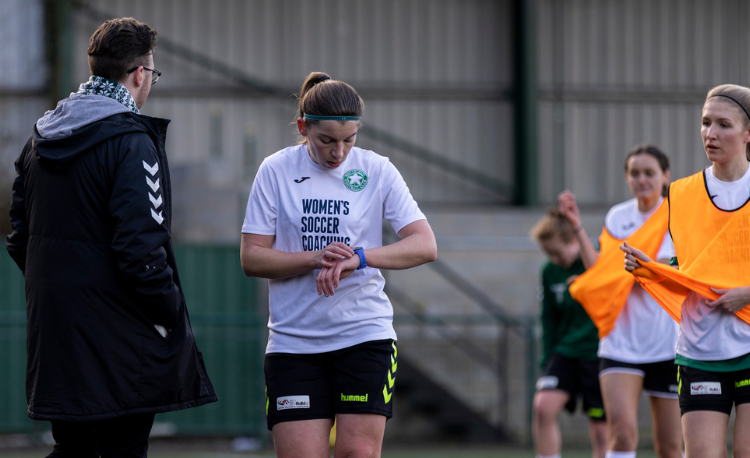Kyle Martyn: 'Soccer provides an equal playing field'
Philadelphia-based coach Kyle Martyn tells Steph Fairbairn what he loves about soccer, creating harmonious learning environments...and his home state
Kyle Martyn is senior girls’ academy director for the Ukrainian Nationals Soccer Club in Pennsylvania, the place where he grew up.
Martyn played high school and college soccer in the state before going professional for a few years. Now, as a coach, he gets to give back to the game he says was such an integral part of his childhood.
SCW caught up with Kyle at the United Soccer Coaches convention - coincidentally held in Pennsylvania, back in January - to talk about the importance of soccer for kids, how he creates a safe space at his club, and what it’s like coaching in your home state…
SCW: Why do you think soccer is so important as an outlet for young people?
KM: "I think sport in general provides an environment where the playing field is equal.
"Some families are much more well off than others, that’s just the reality of the situation, and there’s this whole economic scale of low class, middle class, upper middle class.
"But sport provides this place where everybody comes and the rules are the same. There’s no special treatment, no ‘hey, you get a headstart here’. That’s what I love about the game the most - it’s equal for everybody.
"The important thing it gives our youth is it allows them to be in a place where they can inadvertently learn these different things that they might not get anywhere else.
"You can tell a child to stop doing something or you can try to explain to them certain things about the world, but they are not really going to understand it or grasp it because they haven’t experienced it.
"Experiential learning is about experiencing it for yourself and then reflecting on it, whether it’s consciously or subconsciously.
"I think soccer provides these kids with an experience where not only are they dealing with players from different backgrounds - learning how to work with one another, dealing with adversity - but it gives them a safe place to have those experiences without the consequences being dire.
"And they can take those lessons with them throughout life - learning how to deal with diversity and challenges when they become adults, and what it means to be responsible for something more than yourself, like a teammate, or a team, or working towards a common goal.
"We have a ’Big Sister, Little Sister’ program where older girls teams mentor younger girls..."
SCW: How do we go about creating that environment for players? What are some of the things you do within your club to make sure there is that safe space?
KM: "I think it’s always being - and we preach this to the coaches at our club - very open and honest about who you are and what you are trying to do.
"When they are kids, the parents are involved in the process as well, so [it’s about] having them buy into what we are trying to cultivate with their children.
"It can only help the situation by making sure everybody is on the same page and cultivating this safe space and environment together.
“Parents want safety and enjoyable experiences for their children, so showing them how we are doing that helps them feel more comfortable about them dropping their kid off for an hour or two with you.
“The other stuff we do is try and create a family atmosphere. We try and create a place where kids want to come and be a part of it.
“We have implemented the ’Big Sister, Little Sister’ program with our girls, where older girls’ teams mentor younger girls’ teams.
"They do activities on and off the field to cultivate that sisterhood and that bond to create an environment of comfortability, knowing that they can go to not just me, but older players now as well.
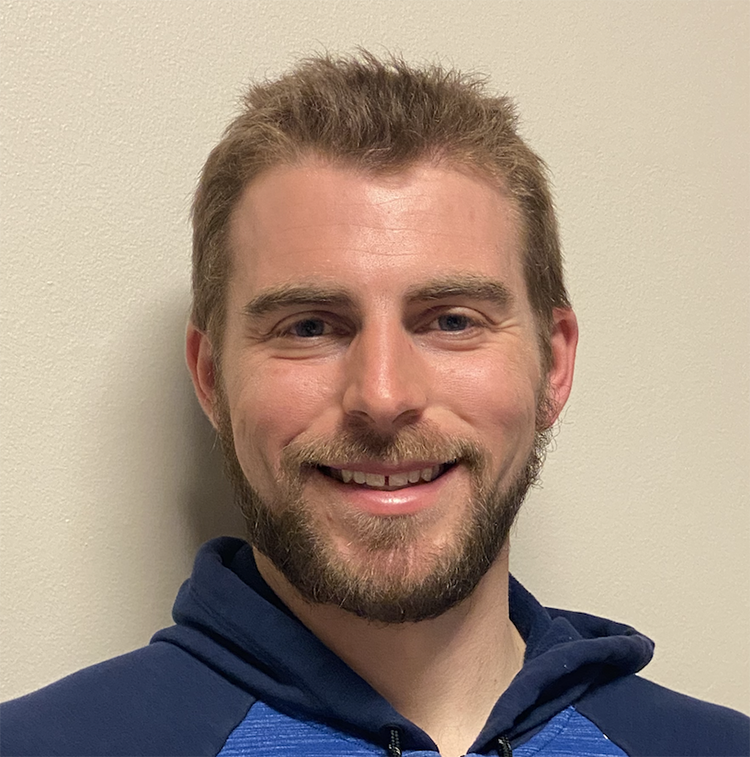
“The big sisters feel they can help the younger sisters and teach them things they might not know, and the younger sisters feel comfortable asking the bigger sisters about their journey and experiences.
“We try and carry this atmosphere of family and acceptance, but also it’s okay when things don’t go as planned. It’s okay when things are a little messy and you get upset over certain situations.
"Family members fight all the time, it’s part of life. As long as you know that, at the end, you’re brothers and sisters, they love you and want what’s best for you.
“That is the sort of environment we try and create at our club so there is that safe space where you can make mistakes. At the end of the day, we’re going to take care of you."
SCW: Should coaches learn more about how we care for players as humans rather than just looking at formations and technical elements?
KM: "I think that’s important. We ask our players to be open-minded, to think about the game differently when we are teaching them on the field. So, as coaches, how can we not do the same?
“I have the self-reflection piece where I always think ’How can I be a better director? How can I be a better coach?’.
“A lot of coaches I know do it already, which is fantastic - ‘I’m not going to be doing the same thing I’ve been doing for the past 10-15 years, I’m going to try and switch it up and these are the reasons why, this is what I’ve read, this is what so-and-so who’s an expert on whatever has been saying’.
"I think that’s the big piece - can we create an environment where coaches are self-learners, where they take an autonomous approach to their learning environment?
"If you want to ask your players to do it, you have to be doing it yourself as well."
SCW: As coaches, we have a certain scope of influence. But then there are players, parents, people that run the club...is part of it being brave enough to challenge some of the things we see? Is that hard when you feel like everyone’s pushing against you?
KM: "There are a lot of cogs in a machine; a lot of people influencing decisions.
"Different clubs have different models, different ways of going about their day-to-day operations.
“My best piece of advice would be find a place that aligns with who you are, your vision, what you view youth soccer being.
“Now you’re not fighting so hard for those decisions. You’re not fighting so hard with parents, board members, leadership, whoever it is, because you’re going against what the culture is.
"If you’re at a place that doesn’t align with your values, I think you need to be brave enough to bring those conversations up in a respectful way and understand it’s okay to disagree sometimes.
"We ask players to think about the game differently - how can we not do the same...?"
“There’s no right or wrong way to do something, there’s just a way. Just because you have a value and someone else might view the same situation in a different light, it doesn’t mean either of you are wrong.
"Can you find a place where you are viewing certain situations in the same light as the people that you’re working with?”
SCW: What is it that has kept you in Philadelphia and how cool is it to coach in your home state?
KM: "Having a tie to the city I grew up in is so valuable for me. I just spoke about knowing who you are - I know this is where I belong, a place that I value.
“Philly in certain areas has certain types of people. They talk in a certain way. They have a certain attitude. I appreciate that and love that because I’m from here.
"I’m sure people from Chicago can say the same thing about people from Chicago and people from Brooklyn, New York can say the same thing.
"I feel at home here, I feel comfortable when I go about my daily work with Ukrainian Nationals. I have people around me that do things in the same way
“If I went to work at a place in Los Angeles or Seattle, or even in a different country, as a lot of people do, it would be a lot harder to find a place like that. I’m not saying they don’t exist, I’m sure they do.
“We’re doing a lot of good things in the club. I can’t wait to see where we are in the next five or 10 years with the people we have and the leadership structure we have.
"I’m just looking forward, I’m very grateful for what I do, and I’m very grateful for the place I work at.”
Related Files
Newsletter Sign Up
Coaches Testimonials

Gerald Kearney, Downtown Las Vegas Soccer Club

Paul Butler, Florida, USA

Rick Shields, Springboro, USA

Tony Green, Pierrefonds Titans, Quebec, Canada
Subscribe Today
Discover the simple way to become a more effective, more successful soccer coach
In a recent survey 89% of subscribers said Soccer Coach Weekly makes them more confident, 91% said Soccer Coach Weekly makes them a more effective coach and 93% said Soccer Coach Weekly makes them more inspired.
*includes 3 coaching manuals
Get Weekly Inspiration
All the latest techniques and approaches
Soccer Coach Weekly offers proven and easy to use soccer drills, coaching sessions, practice plans, small-sided games, warm-ups, training tips and advice.
We've been at the cutting edge of soccer coaching since we launched in 2007, creating resources for the grassroots youth coach, following best practice from around the world and insights from the professional game.
